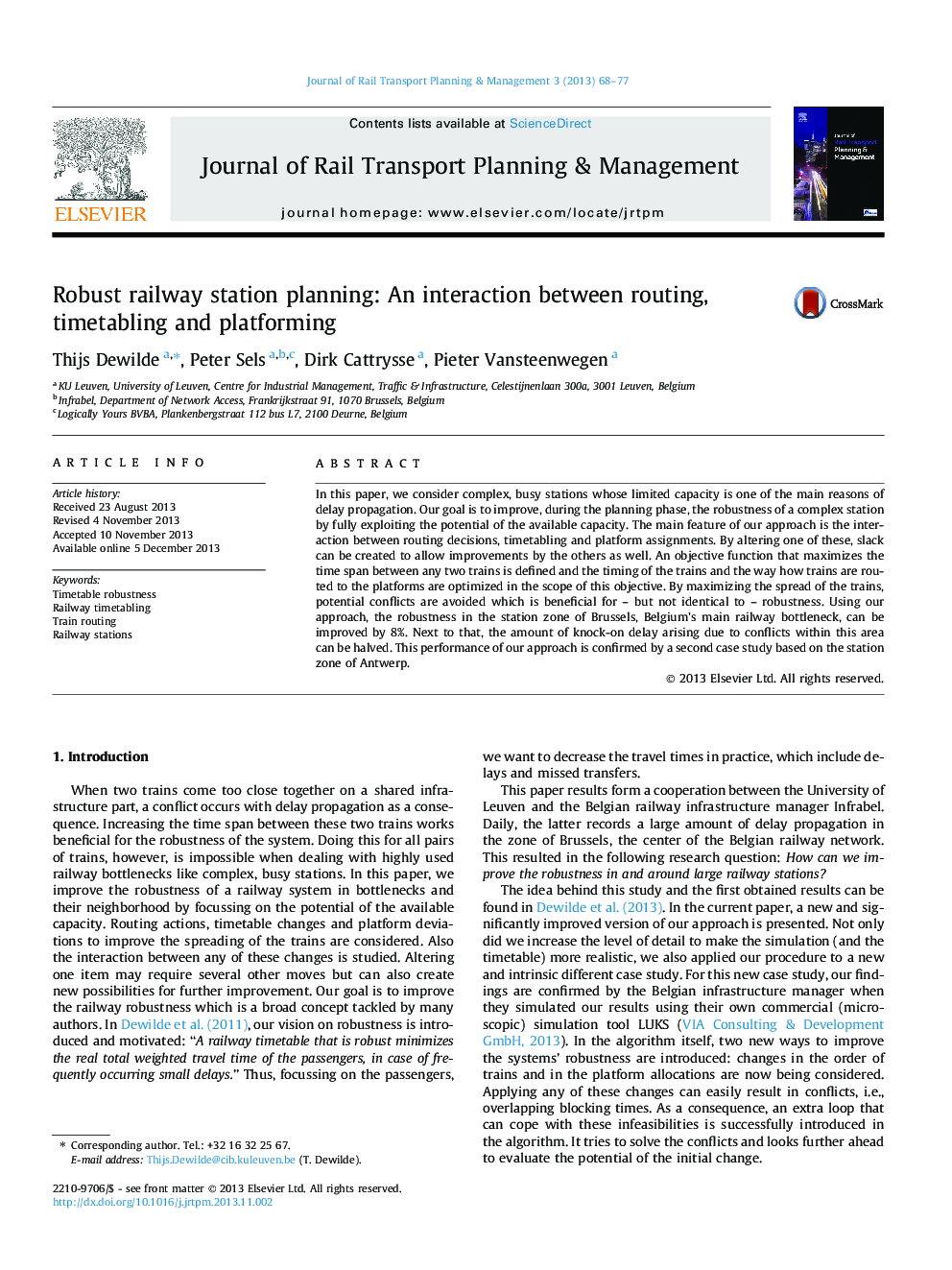| Article ID | Journal | Published Year | Pages | File Type |
|---|---|---|---|---|
| 10289173 | Journal of Rail Transport Planning & Management | 2013 | 10 Pages |
Abstract
In this paper, we consider complex, busy stations whose limited capacity is one of the main reasons of delay propagation. Our goal is to improve, during the planning phase, the robustness of a complex station by fully exploiting the potential of the available capacity. The main feature of our approach is the interaction between routing decisions, timetabling and platform assignments. By altering one of these, slack can be created to allow improvements by the others as well. An objective function that maximizes the time span between any two trains is defined and the timing of the trains and the way how trains are routed to the platforms are optimized in the scope of this objective. By maximizing the spread of the trains, potential conflicts are avoided which is beneficial for - but not identical to - robustness. Using our approach, the robustness in the station zone of Brussels, Belgium's main railway bottleneck, can be improved by 8%. Next to that, the amount of knock-on delay arising due to conflicts within this area can be halved. This performance of our approach is confirmed by a second case study based on the station zone of Antwerp.
Keywords
Related Topics
Physical Sciences and Engineering
Computer Science
Computer Science Applications
Authors
Thijs Dewilde, Peter Sels, Dirk Cattrysse, Pieter Vansteenwegen,
